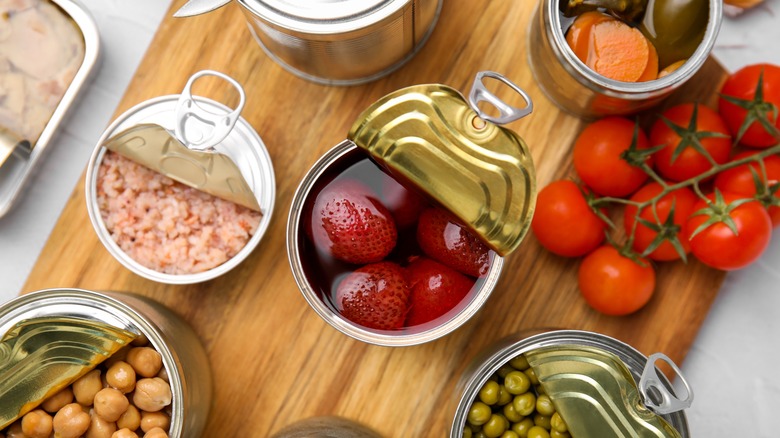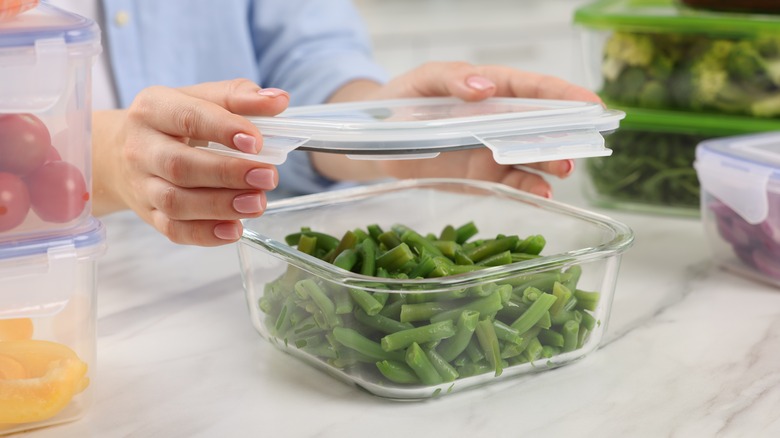The Best Way To Store Open Canned Foods In Your Fridge
Canned food is simple on the surface, but turning perishable goods into shelf-stable products is nothing short of extraordinary. This feat of food science is made even more impressive considering it dates back to the 18th century. Decades before microbiology's connection to food spoilage was well understood, French chef Nicolas Appert began developing the process of canning. Beginning in 1795, he tried packaging everything from vegetables to dairy products in glass containers. (The much more durable metal cans, reinforced by their distinct ribbed marks, were designed by Englishman Peter Durand in 1810.) The eventually honed method of heating and then sealing jars earned him a financial award from the French government, which sought a way to safely preserve and transport food for its soldiers through the Napoleonic Wars. This money went toward funding the first commercial cannery.
More than two centuries later, canned goods are stocked in pantries worldwide. While the methods of closing glass jars and metal tins have evolved, the basic principles of using sterilization and airtight seals to prevent bacterial contamination remain essential. Of course, once you break a can's seal, any leftovers should be refrigerated for food safety. While there are many rules for storing canned food, when dealing with open cans, you'll want to take a page out of Appert's book: create an airtight seal. Since you can't completely re-seal a tin can after it has been damaged, there are fortunately a couple of easy, effective ways to safely store its contents in the fridge.
An airtight seal is essential
Whether you're storing open cans of fruit or soup in the fridge, you should always aim to create a seal around the container's opening. This can be easily achieved by pressing plastic wrap or foil over the top of the can and securing it snugly in place, sans gaps, with a rubber band. There are also convenient kitchen accessories like reusable silicone can covers designed specifically for this purpose. Creating a physical barrier between the can's contents and the air inside the fridge will help preserve food's quality for longer, resulting in better-tasting dishes when you finally finish it. Additionally, an airtight seal helps prevent bacteria from contaminating the leftovers.
Still, there are limits to how long you should store leftover canned food inside its original packaging, even when refrigerated. According to the USDA, canned goods high in acidity, such as tomatoes and pineapple, can be kept in a can for five to seven days. On the other hand, low-acid canned foods like meat, fish, and beans should only be stored in open cans for three to four days.
Of course, just because you can store an open can of food in the fridge doesn't mean you should. For maximum freshness and flavor, the USDA recommends transferring leftovers to a plastic or glass container with a completely airtight seal, which should then be eaten within four days. While it's not necessarily as quick or simple (and results in extra dishes), this method is always reliable.

